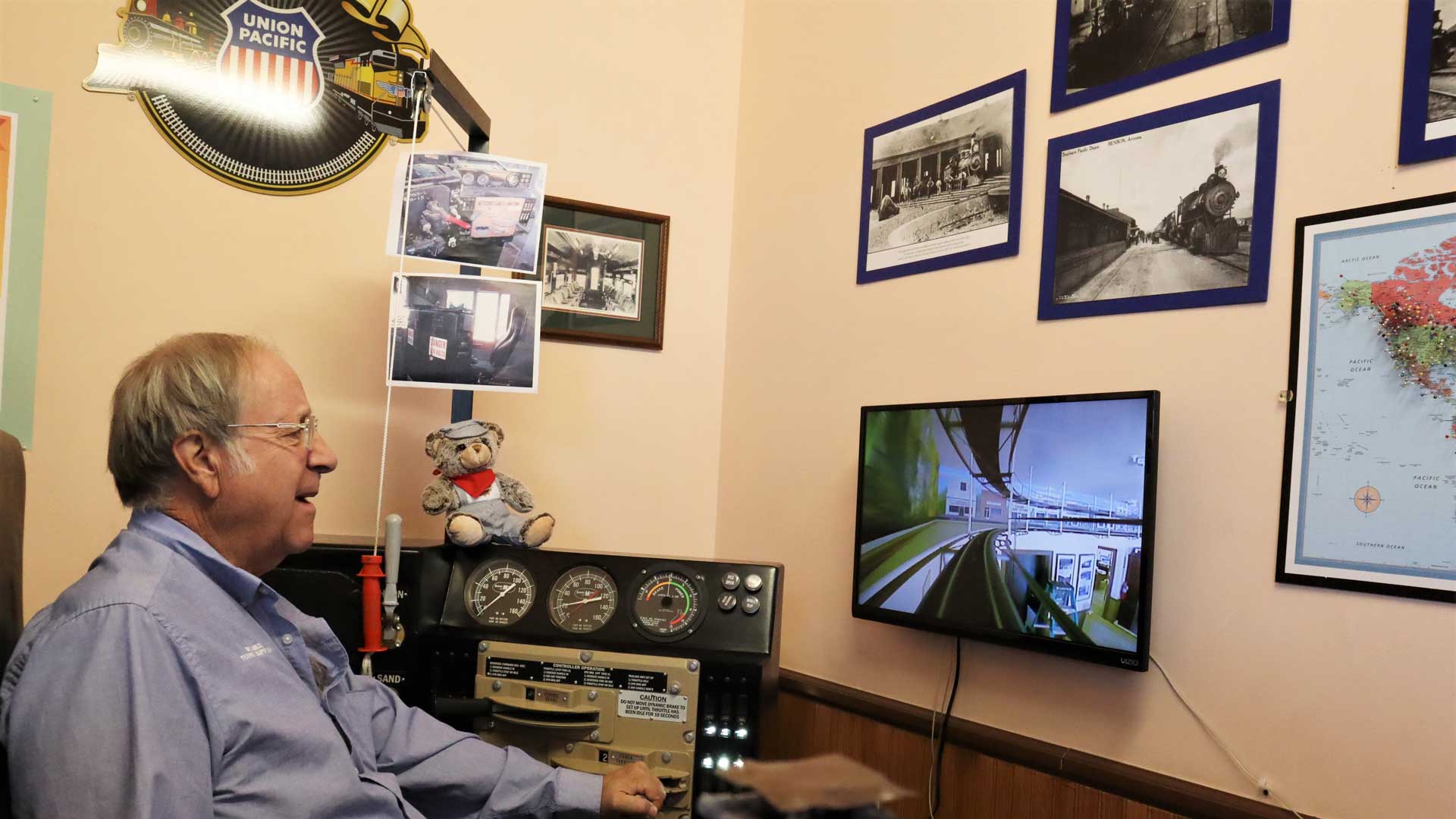 Bob Nilson, the Tourism Supervisor at the Benson Visitor’s Center, shows off the train simulator, which is a fan favorite at the visitor's center.
Bob Nilson, the Tourism Supervisor at the Benson Visitor’s Center, shows off the train simulator, which is a fan favorite at the visitor's center.
The Benson Visitor Center is the first organization in Cochise County to become a Certified Autism Center through the International Board of Credentialing and Continuing Education Standards or IBCCES.
Benson Visitor’s Center Social Media Manager Kathy Lara said that they wanted to get the certification to better serve those on the spectrum who are drawn to the center’s train simulator that’s connected to a remote-controlled train on tracks that runs above visitors on the ceiling.
“My son is also on the Autism spectrum,” said Lara. “So, it was a personal project for me in just highlighting and taking away a lot of that stigma.”
Bob Nilson, the Tourism Supervisor at the Benson Visitor’s Center, said the training was delivered online and took about eight hours.
“They kind of trained us to recognize the different sensory needs that they have,” said Nilson. “Some are very sensitive to smells, some are very sensitive to sounds and tastes — to different things. They trained us to kinda look for these signs so that we could be sure that we don’t do anything that offends them.”
The certification from the IBCCES is to help businesses and organizations learn how to effectively communicate and provide services for those who are on the spectrum.
Meredith Tekin, President of the IBCCES, said that the certification lasts for two years and costs between a couple of thousand dollars to $10,000 depending on the type and size of the organization.
“The process I would say for most organizations is about a 30 to 60-day process,” said Tekin. “It is self-paced so that folks can take their time and understand the information.”
The certification cost the Benson Visitor’s Center $1,500. Nilson said that the initial cost of the training was $5,000.
“We couldn’t afford $5,000, so when AOT (Arizona Office of Tourism) okayed it, then it was $2,500,” said Nilson. “So we could put it in the budget. And then, when she (Tekin) actually contacted us, she found out that there’s only three of us. And so, we pay about $1,500.”
Part of the training also influenced the merchandise that the visitor’s center now offers. Gay Spivey, a tourism clerk, re-designed the tee shirts the visitor’s center sells, making the design less busy and overwhelming and selecting fabric that is softer to the touch.
“Because of the amount of people who come in that are on the spectrum and are train enthusiasts, the train tee shirts were a huge hit,” said Spivey, who said that since inventory was running out, she took the opportunity to re-design the shirt. “We also found this really, really soft material for the sensory needs for the people on the spectrum. And, we’re already ordering them again.”
Tekin said that more resources for those on the autism spectrum are needed, especially for rural communities.
“One in six people have a sensory need or sensitivity, and the CDC (Centers for Disease Control and Prevention) just updated the Autism diagnosis rates in the U.S. here to one in 36 individuals are now getting diagnosed with Autism,” Tekin said.
“It’s also important for rural areas because this is another way that destinations and communities can not only serve those visitors or even community members better, but they can also use it as a way to widen their platform and reach an audience that maybe hadn’t considered visiting that location or that area,” she continued.

By submitting your comments, you hereby give AZPM the right to post your comments and potentially use them in any other form of media operated by this institution.